How to find buried treasure and how to find out who owns it
- Published
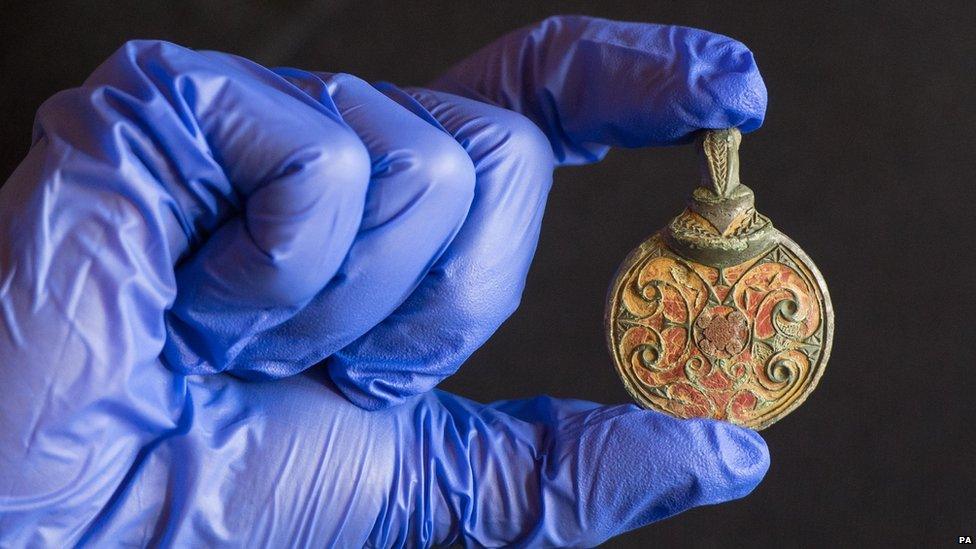
After treasure found in Norfolk is confirmed as Anglo-Saxon jewellery of "national significance", the finder has given us his top tips for finding some of your own.
Tom Lucking, a 23-year-old from Felixstowe, was metal detecting in a field near Diss in 2014 when he found the gold pendant.
It's taken this long, and the pendant is yet to be valued, but finally the British Museum in London has confirmed its authenticity.
How to know if what you've found is treasure
Naturally not every item you find is classed as treasure - so what should you keep a look out for?
"Treasure is essentially any gold or silver artefact that is more than 300 years old - or any groups of gold, silver or bronze coins that are found together," Tom tells Newsbeat.
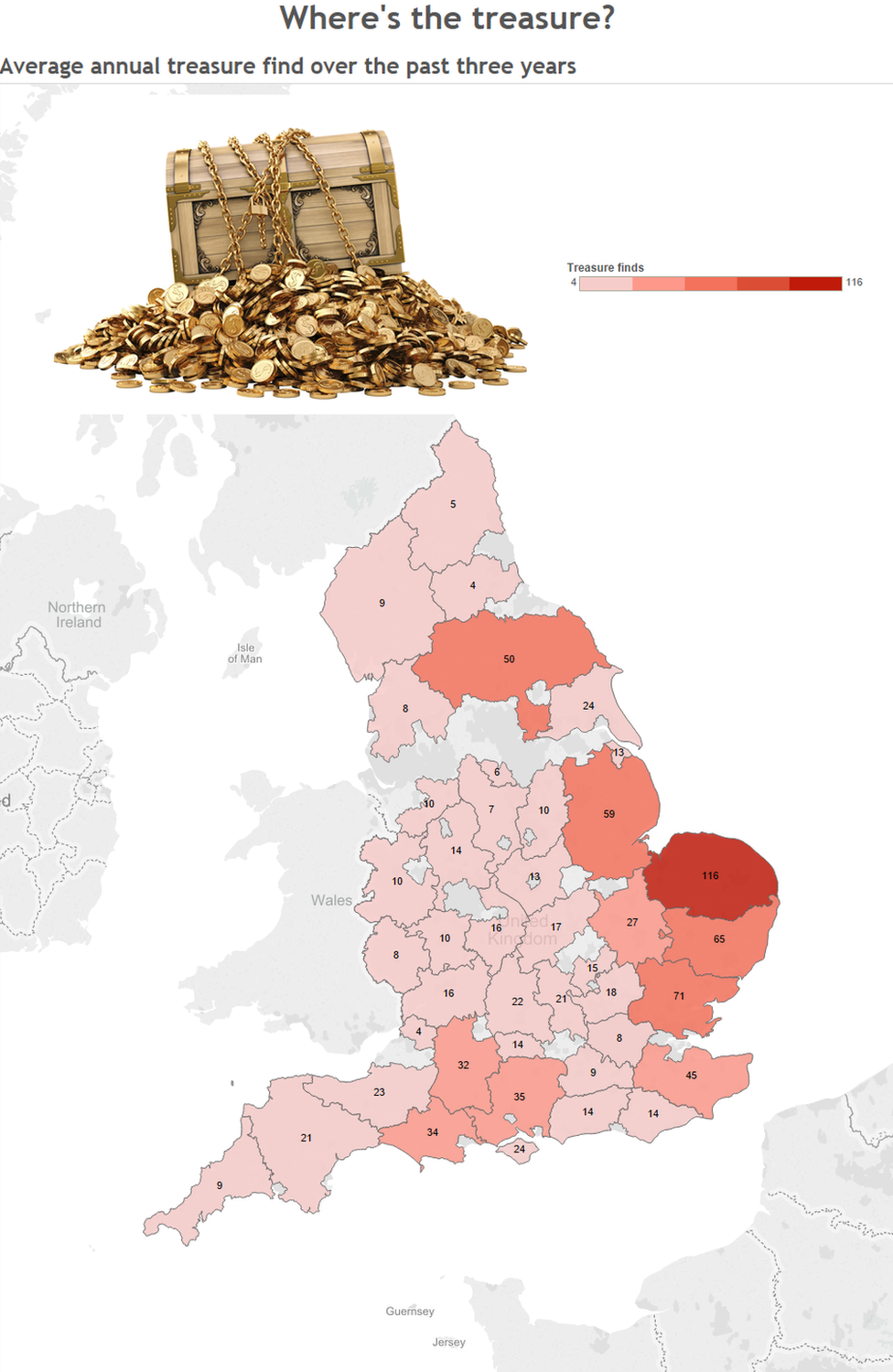
"Hordes of coins - medieval gold and silver jewellery - things like that."
Julie Shoemark, a finds officer, says Tom's gold pendant dates back to the early Christianisation of Anglo-Saxon England, around the middle of the seventh century AD.
Treasure is...
Any object that is at least 300 years old when found and...
is one of at least two coins in the same find with a precious metal content of at least 10%
if the precious metal content is less than 10%, is one of at least 10 coins in the same find
is not a coin but has precious metal content of at least 10%
is any object of any material found in the same place as another object that is deemed treasure
any group of two or more metallic objects of any composition of prehistoric date that come from the same find
is an object substantially made from gold or silver but is less than 300 years old
Don't cause any damage
Many archaeologists are keen for amateur hunters to share their finds with the wider community but stress that undiscovered cultural sites shouldn't be damaged to avoid them being permanently lost.
Finds in England and Wales that are described as treasure under the Treasure Act, external must, by law, be reported.
Note the laws around finding treasure are different in Scotland, external and Northern Ireland.
There is also a voluntary reporting scheme for finds which may have cultural or historical significance.
Since its launch almost 20 years ago, experts at the Portable Antiquities Scheme, external have examined more than 100,000 items.
One of the scheme's main aims is "to advance knowledge of the history and archaeology of England and Wales by systematically recording archaeological objects found by the public".
Buy decent tools for the job
"A decent entry-level metal detector probably comes in at £200.
"The second most important thing would be a GPS so you can plot exactly where these things are."
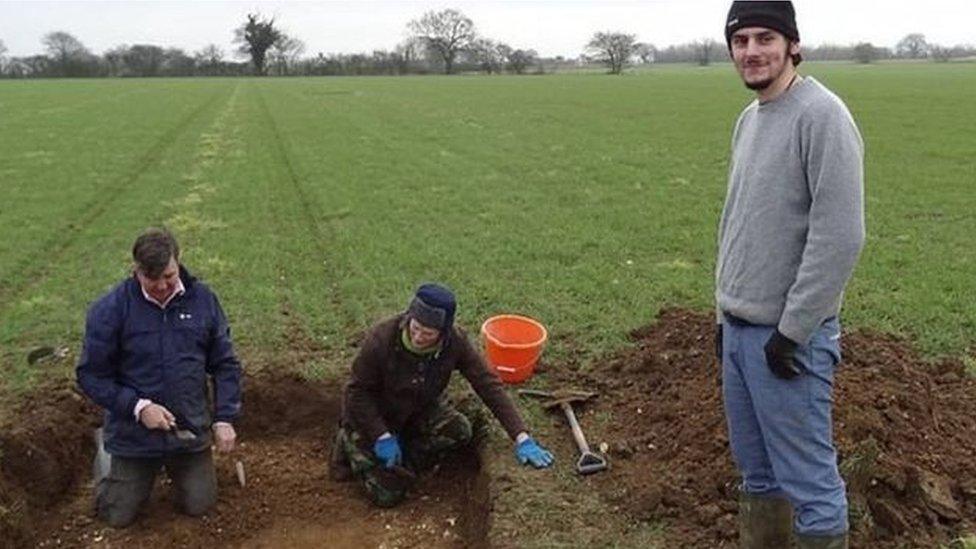
Get permission from the person who owns the land
Tom tells us that the key thing when searching on private land is to get permission from the land owner.
"Some land owners prefer a written agreement so there's clarity over everything but in most cases a verbal agreement ought to do it," he says.
Don't get your hopes up before searching
Tom has been metal detecting since he was 11-years-old - but he made his first major finds at the age of 21.
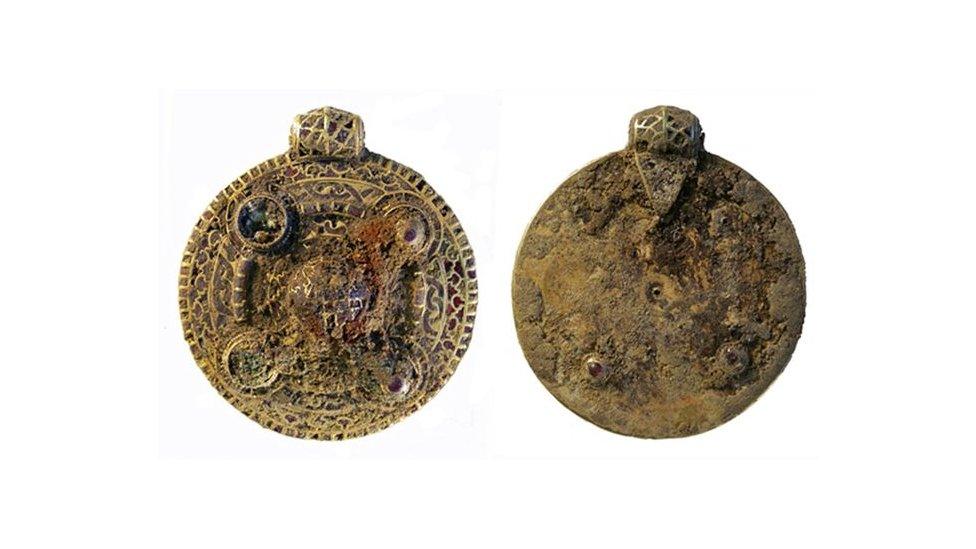
"It's amazing where junk goes. The furthest reaches from any sort of village or town will have modern bits of technology in them"
"You'll get a big signal in the field and it'll sound really good but it's actually a great big aluminium can."
Decide when something's special or not
Tom told Newsbeat that anyone that wants to find treasure would be better off going out without the intention of finding treasure.
"It's not necessarily about going out and looking for treasure. It's about going out and looking for historical artefacts to add to the understanding of the area.
"The general rule in the hobby is if you don't know what something is don't throw it away," he says.
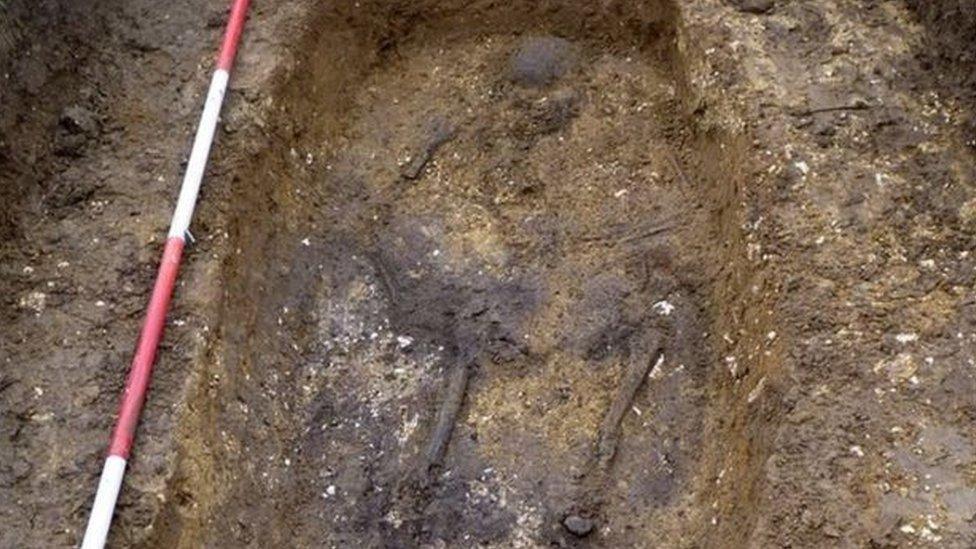
This is the grave which Tom found his artefacts in
Establish who owns the treasure first
So you've made a deal with the land owner to search their grounds - and now you think you've found something special, but how do you decide who owns the treasure?
"It's a private agreement between the land owner and the finder and every case is different," he says.
"But the general agreement is a fifty-fifty share."
Get an expert's opinion as soon as you can
Tom found the artefacts in his first year at university.
He's now in his final year studying landscape history and his findings have shaped his dissertation.
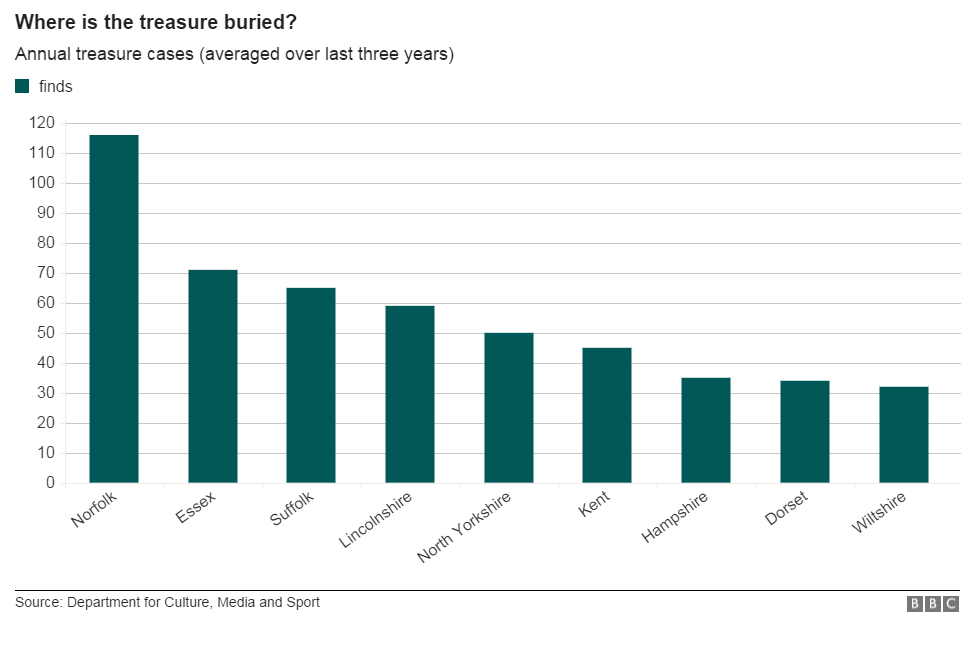
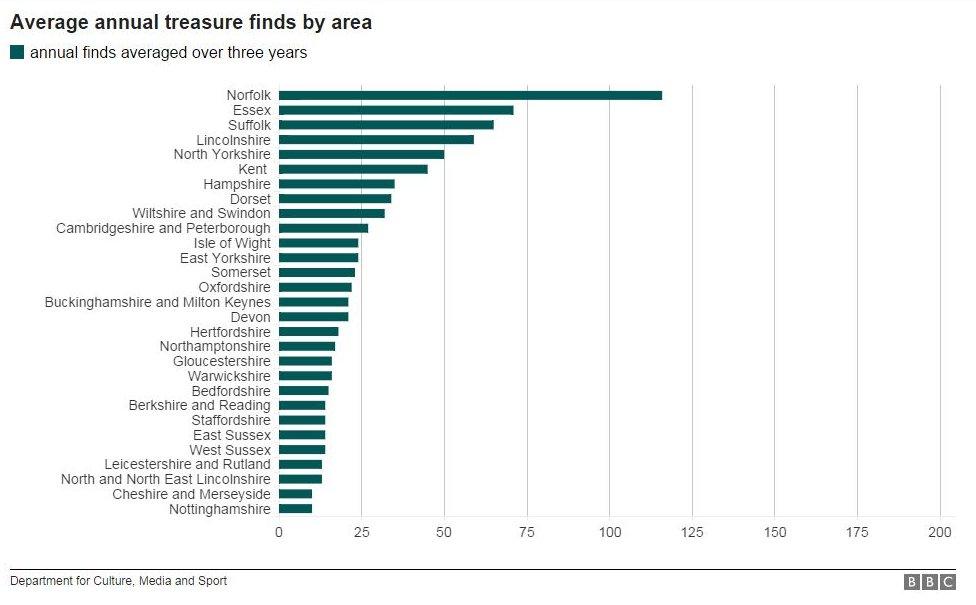
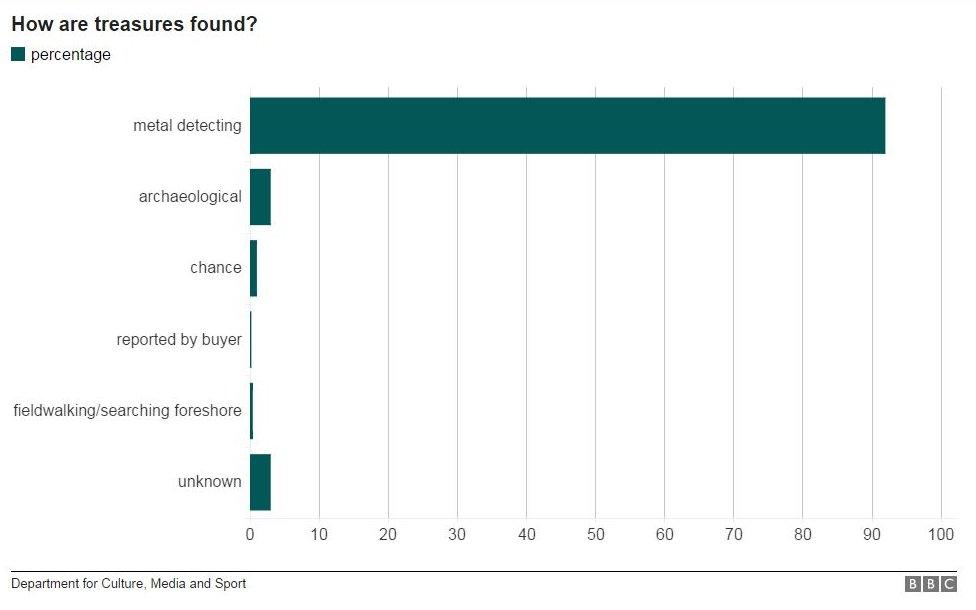
"I'm looking into why what I found was there and what that tells us about the area itself."
So it seems like anyone that wants to find treasure would be better off going out without the intention of finding anything and Tom would agree.
"It's not necessarily about going out and looking for treasure. It's about going out and looking for historical artefacts to add to the understanding of the area."
Find us on Instagram at BBCNewsbeat, external and follow us on Snapchat, search for bbc_newsbeat